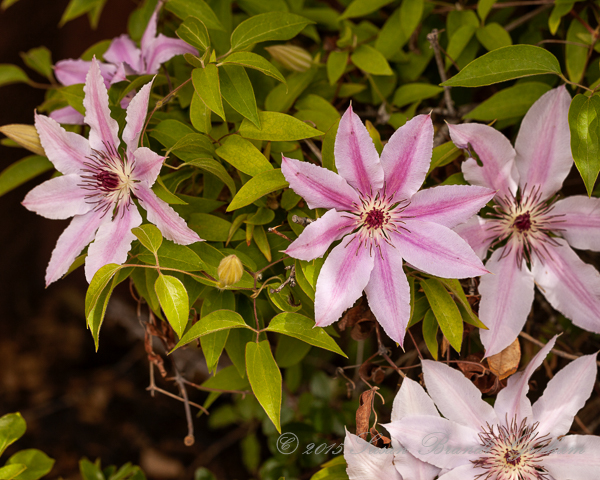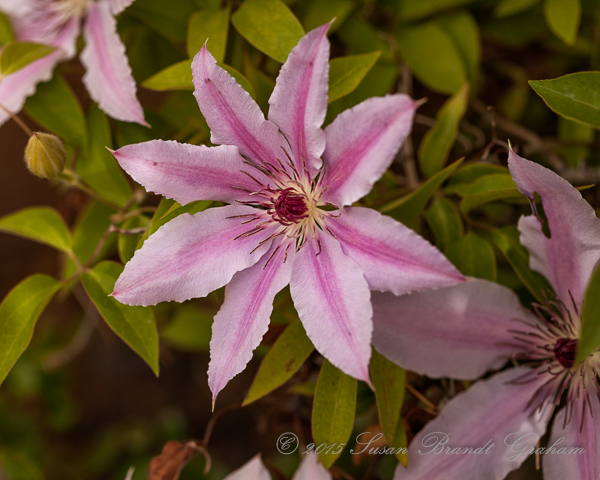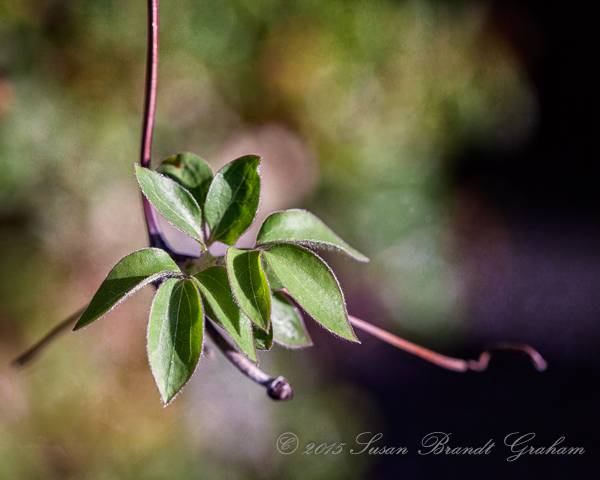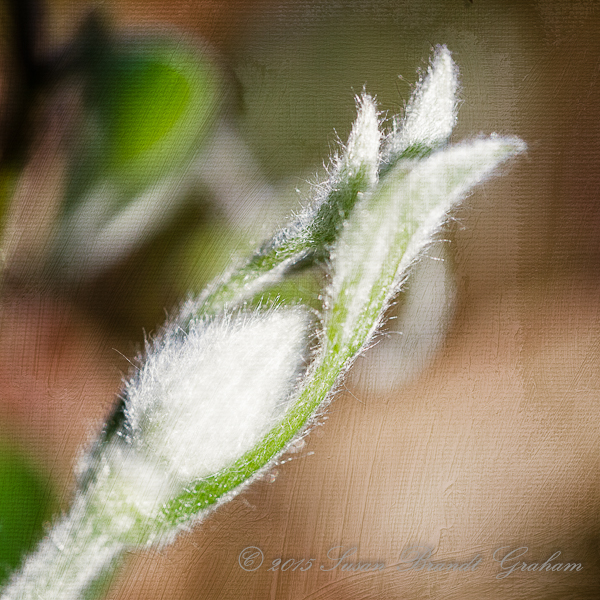Clematis and Mermaid: Great Companion Plants
Clematis and Mermaid: Great Companion Plants
Clematis and Mermaid make great companion plants. I have already shown this year’s ‘Nelly Moser’ bloom with ‘Mermaid.’ ‘Nelly Moser’ is the first to bloom. As that bloom comes to an end, a white clematis, whose name I do not know, begins its bloom. About the time that bloom comes to an end, ‘Mermaid’ will begin what can be a spectacular spring bloom. The white clematis is reaching the peak of its 2015 bloom.
Clematis needs “cool feet” to thrive, along with sunshine on the leaves. ‘Mermaid’ provides shade for the clematis roots, and a strong structure on which the clematis vine can climb.
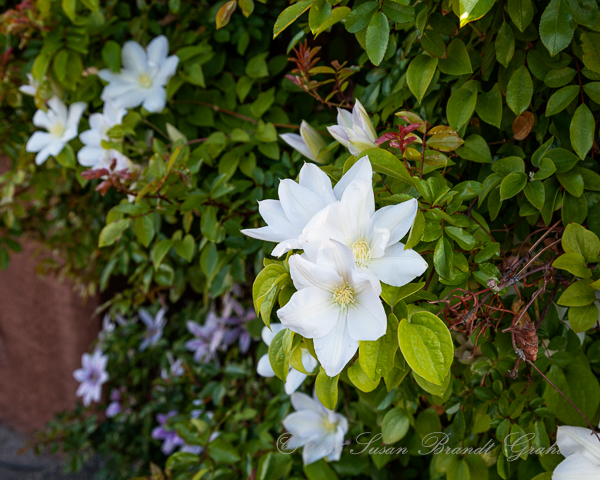
‘Mermaid’ with ‘Nelly Moser’ and a white clematis
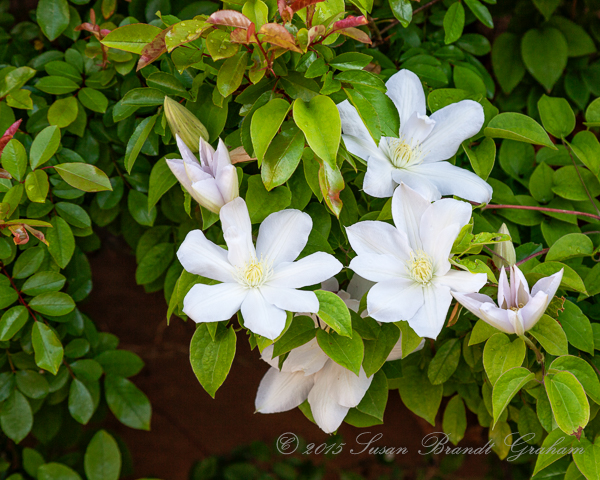
Closer view of white clematis and ‘Mermaid’
This third view gives you some idea of the size of ‘Mermaid.’ I have mentioned before that I prune it back in the fall (the only rose I treat that way!), and it has already grown a lot this year. After the spring bloom, I will cut it back again to keep it from filling up the entire yard! But, I really enjoy growing this rose.
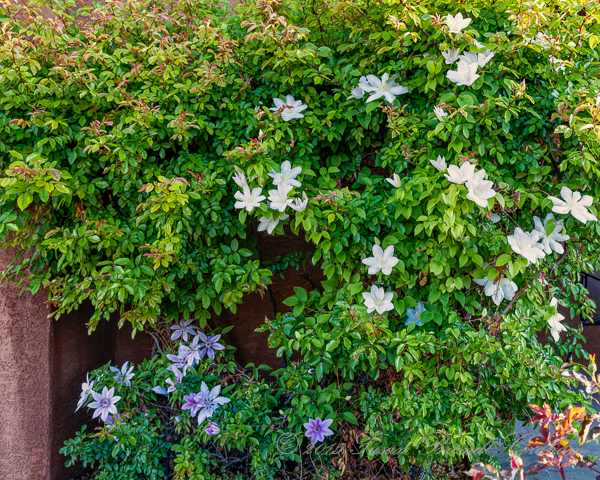
‘Mermaid’ with ‘Nelly Moser’ and a white clematis



